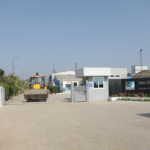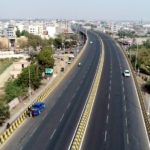India has a very expanded, ever-growing, and evolving diaspora. The Indian Diaspora helps in influencing the countries of their residence and their homeland. They are the bridge between India and their foreign resident countries. They help in promoting the culture of the country. The people of the Indian diaspora supply remittance to India that helps in the country’s economic development. They also contribute to India’s culture and charities because they have a very strong feeling toward the nation. They also help in bringing industrial development and technological advancements to the country. A lot of people of Indian diaspora people gain knowledge and experience from foreign countries and implement it for the betterment of their homeland.
What is Indian Diaspora for NRIs in Bangkok, Thailand?
Indian Diaspora consists of a group of people who are connected to India in one way or other. The people of the Indian Diaspora either trace their origins directly to India or are Indian citizens residing abroad. In simple words, the overseas Indian community residing in foreign countries can be referred to as the Indian Diaspora. The people of the Indian Diaspora can reside in foreign countries either temporarily or regularly. Indian Diaspora includes Non-Resident Indians (NRIs) in Bangkok, Thailand, Overseas Citizens of India (OCIs) in Bangkok, Thailand, and Persons of Indian Origin (PIOs) in Bangkok, Thailand.
NRIs, PIOs, OCIs in Thailand
Thailand is a Southeast Asian country in the centre of the region. The high forested areas of the northern frontier, the rich rice fields of the central plains, the enormous plateau of the northeast, and the rocky beaches of the little southern peninsula, all of which are totally inside the tropics, make up Thailand’s diverse ecosystems.
Until the second half of the twentieth century, Thailand was mostly an agricultural country, but since the 1960s, a rising number of people have moved to Bangkok, the capital, and other cities.
Capital:- Bangkok
Population:- 67,083,000 (2022 Est.)
Head Of State:- King Vajiralongkorn
Official Language:- Thai
Monetary Unit:- baht (THB)
Total Area:- 513,120 (Sq Km)
Currency Exchange Rate:-0.44 Thai Baht
Thai Indians are Thais having Indian origin, either full or partial. However, these ancestors are sometimes overlooked in statistics. Around 65,000 Indian Thais hold full Thai citizenship, yet there are around 400,000 Indians in Thailand, mostly in the cities.
Thailand is a very spiritual country, with Theravada Buddhism being practised by 95 percent of the people. Throughout the nation, visitors will come upon gold-spired Buddhist stupas.
Muslims make up about 4.5 percent of the population, with the majority being Malay. They are mostly found in the provinces of Pattani, Yala, Narathiwat, and Songkhla Chumphon in the country’s extreme south.
Land of Thailand
Thailand is divided into two big geographic areas: a larger main part in the north and a smaller peninsular extension in the south. Myanmar (Burma) to the west, Laos to the north and east, Cambodia to the southeast, and the Gulf of Thailand to the south encircle the country’s main body. Peninsular Thailand extends southward from the country’s southwestern corner along the eastern edge of the Malay Peninsula; Myanmar occupies the western portion of the peninsula until the Isthmus of Kra, after which Thailand occupies the entire peninsula until it reaches Malaysia’s southern border at roughly 6° N.
When Thailand’s contemporary political boundaries were established at the end of the nineteenth century and the beginning of the twentieth, the country contained individuals from a wide range of cultural, linguistic, and religious backgrounds. Most Southeast Asian nations share this variety, since altering governmental boundaries have done nothing to halt centuries-long migrations of people. Because of its central location on the mainland, Thailand has become a crossroads for various demographic flows.
Economy
Prior to the 1960s, Thailand’s economy was focused mostly on the local consumption of rice and other foods and products, as well as the export of rice, rubber, teak, and tin. The government subsequently began to push a transition away from agriculture and toward the production of textiles, consumer products, and, eventually, exportable electronic components. Thailand had begun a firm path of industrialization by the 1980s, and the late-twentieth-century economic crisis simply delayed, not halted, this economic transition.
The Thais initially arrived in their current homeland in the 6th century, and by the end of the 13th century, they had conquered the majority of western Thailand. They clashed irregularly with the Cambodians to the east and the Burmese to the west over the following 400 years. Thailand, formerly known as Siam, has never been colonised by a foreign power. In 1824, the British established a colonial presence in the region, although Thailand’s independence was assured by an Anglo-French agreement in 1896. The monarchy was downgraded to nominal status in 1932, and representative governance with universal suffrage was formed.
Why Overseas Indian Community from Bangkok, Thailand is important in India?
India has more than 30 million Indian Diaspora who provides foreign remittance to the country. The overseas Indian community provides approximately 69 billion dollars, which helps in aiding socio-economic development and poverty reduction. The overseas Indian community provides more donations to domestic charities because they hold strong cultural and emotional feelings towards the nation.
Indian Diaspora is the agent of change that facilitates and enhances investment and boosts international trade and tourism in the country. The Indian Diaspora is also helpful in accelerating the technological sector. The people of the overseas Indian communities are the bridge builders between their homeland and the resident country. Recently the less-skilled labour migrated to other countries, specifically West Asia, which helped eradicate disguised unemployment in the country. Meanwhile, the migration of skilled and talented labour helps build a good image of the country.
Who is a Non-Resident Indian (NRIs) in Bangkok, Thailand?
The term Non-Resident Indian is used for the Indians residing outside the country. But an NRI is an Indian citizen that holds an Indian passport and resides out of the country. The income tax uses the residential status of an individual for taxation. The Income Tax Department of India doesn’t have proper guidelines or definitions of a Non-Resident Indian (NRI), but it outlines the criteria for an individual to qualify as a resident Indian. So, a person who does not qualify as a resident Indian is considered a Non-Resident Indian. According to Section 6 of the Income Tax Act, an individual will be considered an Indian resident if he has been living in India for 182 days or more during the previous financial year.
One can get the title of Indian resident if he has been in India for 60 days or more in the previous financial year. Besides this, if the person is living in India for 365 days or more in the four years immediately preceding the said financial year, then he will be considered a resident Indian.
So, if the individual fails to meet the above-given criteria of resident Indian, then he will be considered a Non-Resident Indian (NRI). Generally, a Non-Resident Indian (NRI) who wants to invest in the Indian stock market sends the fund to a family member who is settled in India. Non-Resident Indians usually park their income sources in India in the bank accounts like Non-Resident External (NRE) accounts and Non-Resident Ordinary (NRO) accounts.
Who is an Overseas Citizen of India (OCI) from Bangkok, Thailand in India?
 The Indian constitution doesn’t allow dual citizenship. In simple words, those who have Indian citizenship and hold an Indian passport are not eligible to hold the nationality and passport of any other country. However, considering the increasing demand for dual citizenship, the Government of India introduced the concept of Overseas Citizen of India (OCI) cards. The Overseas Citizenship of India was introduced under Section 07(A) of the Indian Citizenship act, 1955.
The Indian constitution doesn’t allow dual citizenship. In simple words, those who have Indian citizenship and hold an Indian passport are not eligible to hold the nationality and passport of any other country. However, considering the increasing demand for dual citizenship, the Government of India introduced the concept of Overseas Citizen of India (OCI) cards. The Overseas Citizenship of India was introduced under Section 07(A) of the Indian Citizenship act, 1955.
The overseas Citizen of India (OCI) card works as a lifetime visa and allows the Overseas Citizen of India (OCI) to get visa-free entry. The Overseas Citizen of India (OCI) card does not confer political rights to the cardholder. Besides this, the Overseas Citizen of India doesn’t provide the rights under Article 16 of the Indian Constitution.
A person who was eligible to become an Indian citizen on 26 January 1950 or was an Indian citizen at any time after 26 January 1950, or traces the origin to a territory that became part of India after 15 August 1947 is eligible to apply for Overseas Citizen of India (OIC) card. Here is an exception if the person has been a citizen of Pakistan or Bangladesh, then he cannot apply for an Overseas Citizen of India (OIC) card.
An Overseas Citizen of India (OIC) Card is a multipurpose card that allows multiple lifelong entries into India to the holder. The Overseas Citizen of India (OIC) cardholder can visit India at any time and reside in India for an infinite time. Besides this, the Overseas Citizen of India (OIC) card holder has all the economic, educational, and financial rights that a Non-Resident Indian (NRI) has. Though Overseas Citizen of India has multiple rights, they don’t have the right to acquire plantation property or agricultural land in India.
Benefits of having an Overseas Citizen of India (OCI) from Bangkok, Thailand card in India
Benefits served by the Overseas Citizen of India (OCI) from Bangkok, Thailand cards in India are as follows: –
Firstly, the Overseas Citizen of India (OCI) cardholder will get a lifetime visa-free entry to India. He doesn’t need to register his stay at the Foreigner Regional Registration Office (FRRO), irrespective of the duration of his stay.
Suppose an individual remains an Overseas Citizen of India (OCI) for five years. In that case, he can apply for Indian Citizenship and can stay in India for one year, including short breaks.
A person with an Overseas Citizen of India (OCI) card is eligible to open special bank accounts like Non-Resident Indians (NRI) and invest money in India. People with an Overseas Citizen of India (OCI) card can also exercise ownership rights over non-farm property and purchase and sell non-farm property in India.
With the help of an Overseas Citizen of India (OCI) card, the individual can apply for a driving license, Permanent Account Number (PAN) card, or open a bank account in India.
An individual with an Overseas Citizen of India (OCI) card is eligible to adopt a child in India and will also get economic, financial, and educational benefits similar to NRIs.
Restrictions of Overseas Citizen of India (OCI) from Bangkok, Thailand card in India
Despite so many benefits, the Overseas Citizen of India (OCI) from Bangkok, Thailand card in India has some limitations; they are as follows:-
The overseas Citizen of India (OCI) card doesn’t make a person eligible to enjoy political rights like the right to vote and hold government jobs in India. Besides this, it doesn’t allow the individual to apply to purchase a plantation or farm-related property in India.
Along with this, the individual is also not allowed to run for government offices and visit restricted areas without the authorities’ permission.
Who is a Person of Indian Origin (PIO) from Bangkok, Thailand in India?
 One can be referred to as a Person of Indian Origin (PIO) from Bangkok, Thailand in India if his ancestors (grandparents or parents) may have been Indian nationals. Besides this, if the foreign national – a person who holds the passport of a foreign country, has held an Indian passport at any point in time, such people will also be referred to as a Person of Indian Origin (PIO). As mentioned in the guidelines of the Reserve Bank of India (RBI), a Person of Indian Origin (PIO) is an individual who resides outside India and is a citizen of any country except Bangladesh and Pakistan. The Indian Government has laid certain conditions that an individual needs to fulfil to attain the title of Person of Indian Origin (PIO); they are as follows: –
One can be referred to as a Person of Indian Origin (PIO) from Bangkok, Thailand in India if his ancestors (grandparents or parents) may have been Indian nationals. Besides this, if the foreign national – a person who holds the passport of a foreign country, has held an Indian passport at any point in time, such people will also be referred to as a Person of Indian Origin (PIO). As mentioned in the guidelines of the Reserve Bank of India (RBI), a Person of Indian Origin (PIO) is an individual who resides outside India and is a citizen of any country except Bangladesh and Pakistan. The Indian Government has laid certain conditions that an individual needs to fulfil to attain the title of Person of Indian Origin (PIO); they are as follows: –
An individual would be entitled as a Person of Indian Origin if he was a citizen of India by citizenship act, 1955 or the virtue of the Indian Constitution.
One could attain the Person of Indian Origin (PIO) status if he were a resident of any of the states that merged with India after 15 August 1947.
If the individual is a child, grandchild, or great-grandchild of the citizen of India or the individuals mentioned earlier.
Lastly, one can become a Person of Indian Origin (PIO) from Bangkok, Thailand if they are a spouse of foreign origin or a citizen of India.
Under the 2005 citizenship act, all Persons of Indian Origin (PIO) were eligible to become overseas citizens of India, but later the Overseas Citizen of India cardholder scheme was launched in 2015. The Indian Government decided to merge the two schemes in the year 2015. After merging the two schemes, all the Person of Indian Origin (PIO) cardholders were considered to be Overseas Citizen of India (OCI) from Bangkok, Thailand cardholders. All the Person of Indian Origin (PIO) cardholders are eligible to exit and enter India until 31 December 2021; after that, they need to apply for Overseas Citizen of India (OCI) from Bangkok, Thailand cards.
Advantages of Person of Indian Origin (PIO) from Bangkok, Thailand card in India
Certain advantages are offered by the Indian Government to the Person of Indian Origin (PIO) from Bangkok, Thailand cardholders in India; they are as follows: –
A Person of Indian Origin (PIO) cardholder doesn’t need to have a visa to visit India. Besides this, if you are a student or seeking employment opportunities in India, you don’t need a student or employee visa to apply for a job or academics if you have a Person of Indian Origin (PIO) card.
The individual doesn’t need to register at Foreigner Regional Registration Office (FRRO) when they are staying in India.
The Indian Government has facilitated Persons of Indian Origin (PIO) cardholders with separate immigration counters at all international airports in India.
In economic, educational, and financial matters, the Person of Indian Origin (PIO) card holder enjoys some parity with Non-Resident Indians (NRIs). The Person of Indian Origin enjoys parity with an NRI in property transfers, acquisition, investment, holding, disposal, and admission of children in educational institutions.
Limitations of Person of Indian Origin (PIO) from Bangkok, Thailand card in India
The Person of Indian Origin (PIO) from Bangkok, Thailand card in India also has some limitations; they are given below: –
Holding a Person of Indian Origin card doesn’t allow an individual to vote in India. It means that irrespective of having a Person of Indian Origin (PIO) card, an individual won’t be able to enjoy voting rights in the country.
Besides this, the individual needs to take prior permission from the concerned authorities if he desires to do a mountain expedition or research-related activities in protected areas. Recently the Prime Minister of India, Mr Narendra Modi, has suggested converting Person of Indian Origin (PIO) cards into Overseas Citizen of India (OCI) cards which work as a lifetime visa for the people who have permanently given up their citizenship.
Government Initiatives for Overseas Indians from Bangkok, Thailand in India
The approach of the Indian Government in taking initiatives for overseas Indians in Bangkok, Thailand is two-pronged. On one stand, the Government aids them with consular services, outreach activities, and protection, and on the other side, it creates policies to encourage the overseas Indian community to contribute to the nation’s development through knowledge transfers, philanthropy, and investment in different development projects. The Ministry of External Affairs (MEA) and the Ministry of Skill Development and Entrepreneurship (MSDE) have a Memorandum of understanding between them to implement the Pravasi Kaushal Vikas Yojana. The Pravasi Kaushal Vikas Yojana is framed to institutionalize the skill development process of emigrant workers. Through this scheme, the Government provides basic knowledge of the laws, culture, and language of their destination countries to increase overseas employment.
The Indian Government has launched the Scholarship Program for the Diaspora Children (SPDC) with a motto to provide 100 scholarships per annum for undergraduate courses. The people of Indian origin and Non-Resident Indians are eligible for this scholarship program.
Besides this, the Government of India has also launched an E-migrate system that mandates all foreign employers to register in the database of the system. The E-migrate system is developed from a safety perspective to check on the exploitation met to emigrants and ensure their welfare.
Under the Know India Program (KIP), the Indian Government has targeted Diaspora engagement by familiarizing the youth overseas Indian community with the roots and culture of their homeland. The Indian Government has formulated Minimum Referral Wages that apply to Emigration Check Required (ECR) countries. The Indian Government has increased the minimum wages of the Indian workers who are working as domestic servants, industrial workers, cleaners, and labourers.
The Government has also established a ‘Madad Portal’ to take quick action against grievances addressed by the overseas Indian community. The current Prime Minister, Mr Narendra Modi, has referred to the Diaspora people as ‘Rashtradoots.’ The Indian Government has also provided special aid to Indian Diaspora people in investing by exempting them from certain taxes and other charges. Besides this, the Indian Government has reserved NRI seats in all the Government engineering, professional, and medical colleges.








































